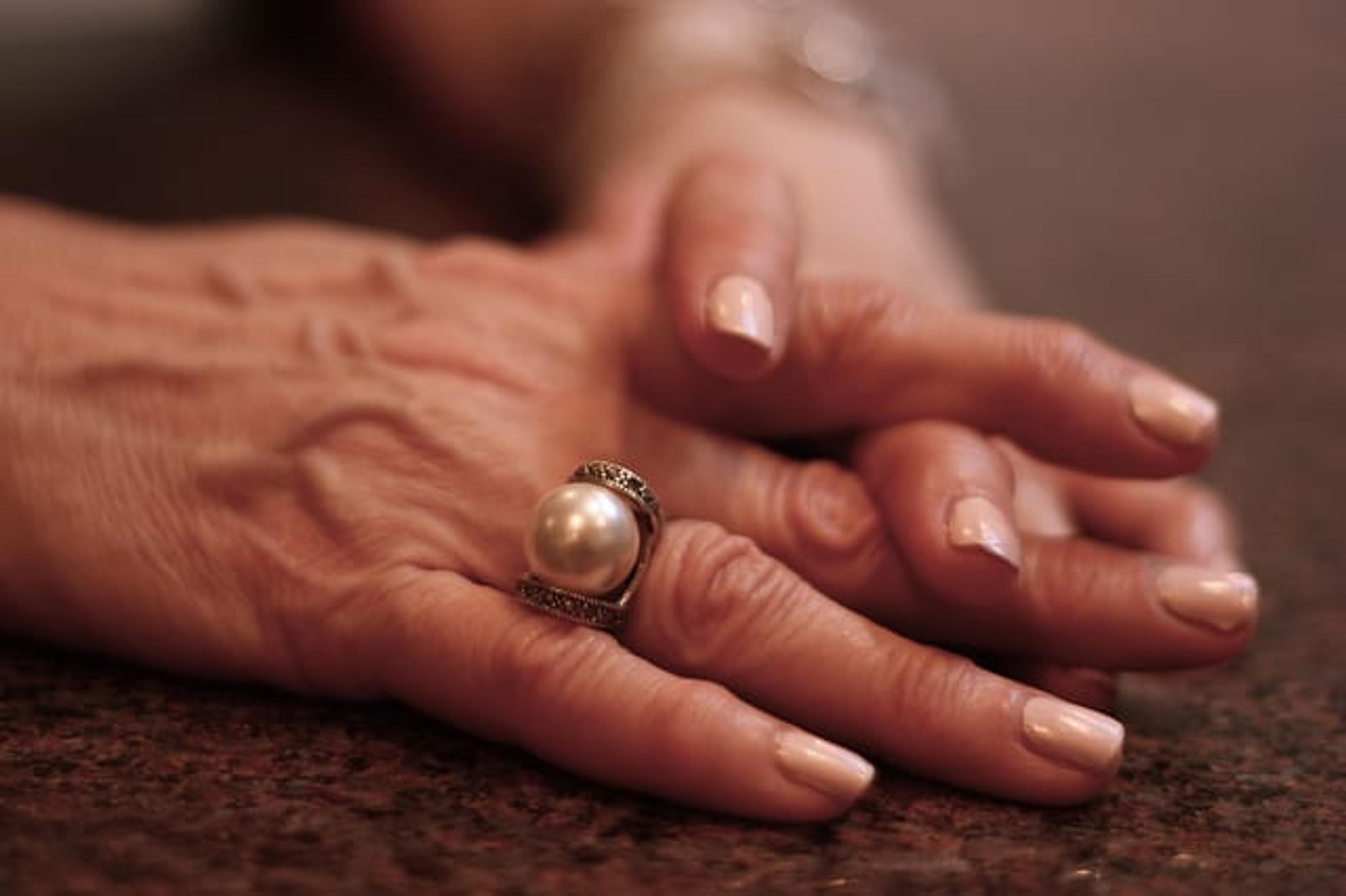Care for the Caregiver: Tips for Balance When You’re Caring for an Adult
Julie Bitely
| 5 min read

Six years ago, life was abundantly full for Judith Crutcher. In fact, maybe a little too full. She and her husband George both had full-time jobs and ran a picture-framing business on the side. She remembers a conversation they had about slowing down. It’s particularly vivid to her, because the next day, George’s stroke forced their hand.
Judy and George Crutcher Jr., with their son George Crutcher III. Crutcher, a Customer Service team leader for Blue Cross Blue Shield of Michigan, didn’t know if her husband of 32 years would live or die. Thankfully, he made it, but not without lasting consequences. His left arm is permanently paralyzed and he also has cognitive impairments that make it hard for him to solve problems and make decisions. He needs supervision most of the time. Crutcher is his primary caregiver. Along with prepping all of his meals, managing his daily medication needs, and scheduling and taking him to doctor appointments, she’s responsible for managing the apartment they share and duties previously fulfilled by her husband, such as paying the bills, taking out the trash and scheduling routine car maintenance. She also still works full time. “It’s all on me and some days, I just don’t want to do this anymore,” she said. The alternative, that her husband wouldn’t have survived his stroke, is much worse, Crutcher is quick to point out. Still, the burnout and stress that caregivers face is a real problem. In the Middle “Women are more likely to neglect their own health as caregivers,” said Lesley Menhart, a licensed clinical social worker based in Grand Rapids. She recently presented a talk to Blue Cross Blue Shield of Michigan employees as part of Work and Family programming designed to help workers balance their life and work. As people live longer, more and more women and men find themselves caring for their children and their parents at the same time, as part of the so-called sandwich generation. While Crutcher’s situation is a little different – she’s caring for a spouse and not a parent – her reality is similar and becoming more and more common.
- Roughly 16 percent of the population, or 34 million adults, are caregivers to adults 50 years of age and older.
- Approximately 52 million caregivers provide care to an adult who is 20 years of age or older and ill or disabled.
- Sixty percent of caregivers are female and work full-time outside the home.
Battling Burnout Caring for someone else while still trying to manage your own household and family can lead to a number of problems, such as:
- Employment issues: Roughly 57 percent of caregivers report going into work late, getting off early or taking time off in order to effectively provide care. This can lead to a loss of income and potentially a loss of employment overall.
- Stress: Navigating the health care and community support systems can be taxing. It’s also emotionally taxing to care for an adult, who might be facing their own loss of identity and guilt and anger over feeling like a “burden”.
- Physical harm: The physical labor that can sometimes go into caring for an adult can lead to back pain and injuries. Caregivers might also suffer physical effects such as weight gain due to not being able to eat a healthy diet or find time to exercise.
- Family problems: Because so much time goes into caregiving, caregivers might find that they end up neglecting relationships with their spouse, other family members and friends. Caregivers face an increased risk of divorce and they also may find that other family members disagree with the care their providing, leading to family conflict. “It is a huge issue,” Menhart said.
Learning to Cope and Thrive Menhart recommends that caregivers take action to make sure their needs are also being met. She suggests taking stock of your current situation to determine what you need. It could be devoting an hour per day to yourself and making sure that you have someone available to take your place for that time to take a walk, go to yoga, or simply sit in a comfortable place with a book – whatever recharges you so that you can continue to be a compassionate caregiver. She also suggests making a list of what you need help with and having conversations with family about how to make it happen. Maybe a sibling could take your parent to appointments if you’re providing in-home care. Maybe a meal service is necessary to relieve some of the burden on you. Perhaps adult daycare would put your mind at ease while you are at work. Menhart says it’s important that the person receiving care be a part of these conversations, if possible. They might be feeling guilt over their loss of independence. Feeling like a burden is a common response to needing care, Menhart said, and it could lead to feelings of anger, frustration or shame. It’s also important to make sure children still living in the home understand what’s happening and that everyone make an effort to not disrupt their schedule and extracurricular activities, so they don’t become resentful of the person being cared for. Crutcher manages stress by gardening and taking walks. She’s simplified the couple’s lifestyle so that she can be more present at home and at work. Counseling also helps her manage anxiety and worries about her husband’s health. Some days, it feels like the work will never end, but other days, she’s grateful that he’s alive and relatively healthy. “You really start living in the present, because tomorrow is too far out,” Crutcher said. If you enjoyed this post, you might also like:
- Beyond the Card: Helping Seniors Find Health and Self-Confidence
- Experts Share Tips for Making Long-Term Care a Priority
- Blue Cross Named a Veteran-Friendly Employer by Michigan Veterans Affairs Agency
Photo credit: Jessie Jacobson





